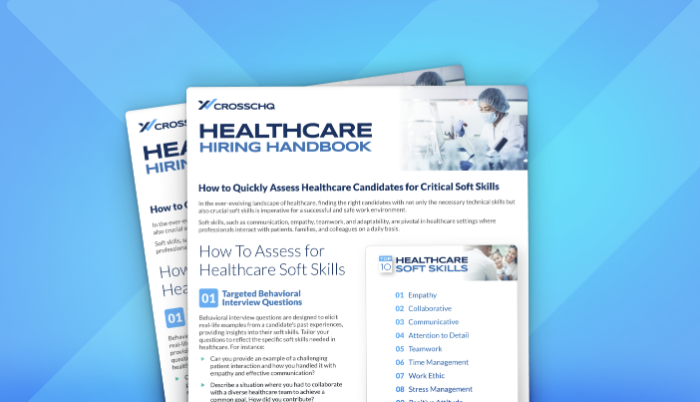

Crosschq Blog
Rusty Rueff Wants to Stop Bad Hires

A bad hire hurts the individual and the organization.
Rusty Rueff is concerned about hiring. Actually, he’s more than concerned, saying in an interview ahead of his keynote at the recently concluded Recruiting Trends and Talent Tech LIVE! conference that he feels “a real responsibility to eliminate the bad hire.” He defines these hires as candidates who look good initially but things go downhill shortly after they’re hired. Chances are, somewhere in the recruiting process were signs that went overlooked.
A bad hire hurts the individual and the organization.
In conventional thinking, a bad or wrong hire has negative implications for the employer—and mostly, this means money lost. It’s about the cost to the organization, something that’s well quantified, averaging out to $17,000 per person. And while Rueff wants to solve this issue, and ensure that companies remain productive and growing, he looks at bad hires from another perspective. Most companies will recover from a hiring mistake, but on the other side, he says, “it’s the person that matters—they don’t always recover.”
Rueff explains that in today’s world, work is more than what we do, it’s who we are. So, when a person becomes a bad hire, the core of their identity gets taken away and their self-esteem takes a hit. Rueff theorizes that if a person is teetering already, being the wrong hire could be an irrecoverable moment in their life, where they lose confidence in themselves.
Bad hires don’t just impact the individual, of course. There are financial implications to consider, not to mention the partners and spouses who have to live with the person, plus kids faced with switching schools and moving away from friends. The effects ripple out and, as Rueff says, “marriages break up over bad hires.”
There’s also the sheer effort it takes for someone to get out of that negative space and back into positive-employment standing. Recruiting doesn’t necessarily account for wrong-fit scenarios, and job seekers know it. Rueff breaks down how this can play out, starting from, “Can you talk about that three-month gig you had?” Candidates will likely to go on the defense, worried that the recruiter will think they got fired for doing something wrong when, in fact, they didn’t. In reality, that previous position was the result of a poor decision, and this person continues to hurt because of it.
An Ethical Problem
Being the wrong hire changes the way people think about work and how they show up for their employer, which is why organizations need to revisit the role recruiting plays on a personal level.
“If we cut corners, we take shortcuts, we talk people into things they shouldn’t be talked into because we’re trying to fill the job, then it’s an ethical problem,” says Rueff. “It’s a moral problem, and I think we should think about it that way. I think we should be so serious about what we do that we shouldn’t hire somebody unless we’re sure that they could never be fired.”
After all, he concludes, “all things that we can do to elevate that as an issue, that as a commitment, part of our values, is good for the world. It’s good for the world. It will change our country; it will change our world if we didn’t have bad hires.”
Source: Recruiting Trends
Newsletter Sign Up

by Rusty Rueff
Advisor
File Under
Take the Guesswork
Out of Hiring
Schedule a demo now



%20-200x43.png)





